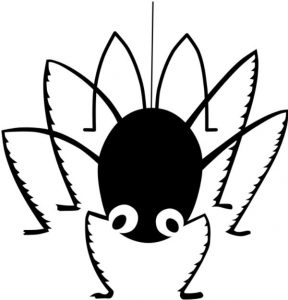
Chances are, if you hear the song Itsy Bitsy Spider, you might be compelled to start making hand gestures to demonstrate a soggy spider climbing up and then being washed down a water spout. That’s because the song has been one of the more popular baby songs that date back to the early 1900’s. This nursery rhyme is popular among small children because it’s short and easy for babies and toddlers to pay attention to, and the finger play that goes along with the song is a fun way to interact with your child and work on fine motor skills.
Often associated with Mother Goose, Itsy Bitsy Spider has been known by a couple of names, including The Spider Song and in England, Incy Wincy Spider. While it’s unknown who actually wrote the popular nursery rhyme, it was first published with different lyrics in the 1910 book Camp and Camino in Lower California, which was about Arthur W. North’s exploration of Baja California. The version in North’s book refers to the spider as “the blooming, bloody spider,” and instead of climbing up and being washed out of a water spout, it’s a web that the spider climbs up. The more child-friendly version of Itsy Bitsy Spider was later published again in 1948, both in the California Folklore Society’s Western Folklore and American Folklore for Children by Mike and Peggy Seeger.
Whether the spider in your version of the song is itsy bitsy, incy wincy or eensy weensy, the eight-legged creature almost always climbs up a water spout, it starts to rain, washing the spider down the spout, and by the end, the sun comes out which allows the spider to climb back up the spout. Although Itsy Bitsy Spider is one of the more popular baby songs out there, the origin of the song is unknown but there are a few theories about the meaning of the song floating around on the internet, from the song representing the struggle of the lower class to alcoholism. Whatever the meaning of the song is, Mother Goose Itsy Bitsy Spider is a classic song beloved by many generations that will probably be around for many years to come.